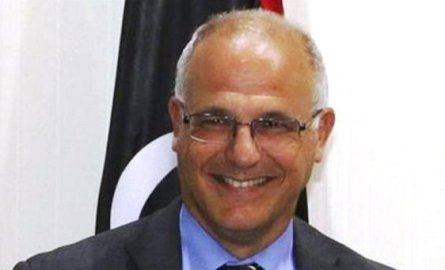Presidential aide, UK ambassador discuss humanitarian access to Sudan’s Two Areas
October 30, 2016 (KHARTOUM) – The British Ambassador to Khartoum, Michael Aron on Sunday has discussed with the Sudanese Presidential Assistant Ibrahim Mahomud Hamid humanitarian access to the rebel-held areas in the war-torn states of South Kordofan and Blue Nile.

After a series of talks in Addis Ababa between 9 to 14 August under the auspices of the African Union (AU), the Sudanese government and the SPLM-N failed to sign a humanitarian access agreement.
SPLM-N demands to bring 20 percent of the humanitarian assistance to the affected areas directly from Ethiopia. The Sudanese delegation rejected the demand insisting all the aid should come via the government controlled areas.
Following his meeting with Hamid on Sunday, the British ambassador expressed hope that talks on the Two Areas would resume soon to achieve peace and security in the country, pointing to the deep bilateral relations between Sudan and the United Kingdom.
According to the official news agency (SUNA), the meeting discussed the government position with regard to the humanitarian access to the Two Areas besides national dialogue and ongoing efforts to form the government of national concord.
On 21 October, SPLM-N announced the suspension of negotiations with the government over political settlement citing the alleged use of chemical weapons by the Sudanese army in the war affected areas in Darfur and the Two Areas.
However, the rebel movement expressed readiness to continue talks for a cessation of hostilities and humanitarian access agreement with the Sudanese government under the AU brokered process.
For his part, Hamid stressed his government’s seriousness to implement the outcome of the national dialogue.
Earlier this month, the government and its allies concluded the National Dialogue Conference by signing the National Document which includes the general features of a future constitution to be finalized by transitional institutions.
The opposition groups boycotted the process because the government didn’t agree on humanitarian truce with the armed groups and due to its refusal to implement a number of confidence building measures.
The recommendations of the conference provide to open the door for the holdout opposition groups to sign the framework text and to join the transitional government and parliament that would work to implement the reforms agreed in the National Document.
But, the opposition armed and political groups criticize the move saying it breaches the Roadmap Agreement which provides to hold a preparatory meeting to create a conducive environment for an inclusive process.
(ST)
